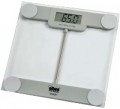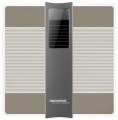Units of measurement
Weights are able to keep records in various units of measurement, while accounting can be done both by mass and by volume. Among the most common units of measurement, we highlight the following.
— Grams (g) — a unit of weight that belongs to the metric system. Grams are used in desktop kitchen scales.
— Kilograms (kg) — a unit of weight that belongs to the metric system. Kilograms are used in floor weighing equipment.
— Pounds (lb:oz) is a common unit of weight used in some countries in Europe, as well as in the United States. 1 pound can be equated to 0.45 kilograms.
— Milliliters (ml) — a unit of volume that belongs to the metric system. Some models of scales are able to determine the volume of milk and water based on mass.
— Ounces (fl'oz) is a unit of volume used in English-speaking countries. 1 US ounce is equivalent to 30 mL.
— Stones (st) is the British unit of weight. Stones are used to take into account the mass of the human body, so this measurement system is found in floor household and specialized diagnostic scales. 1 stone can be equated to 6.35 kilograms.
Operation without batteries
Electronic scales that do not require replaceable power supplies. In different models, power is supplied by different methods: for some, it is a photocell charged from the sun, for others, power occurs by converting kinetic energy (shake). Thus,
scales without batteries are always ready for use.

